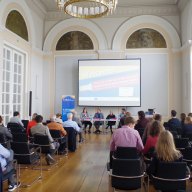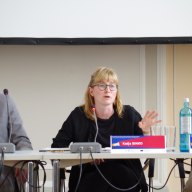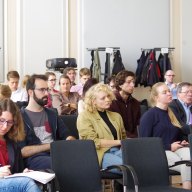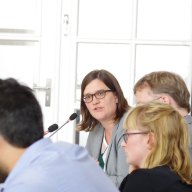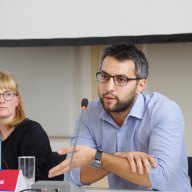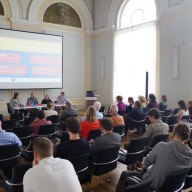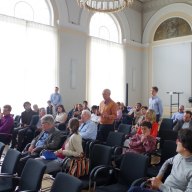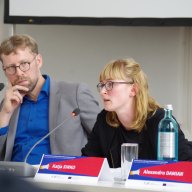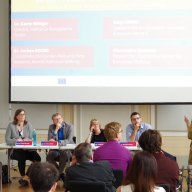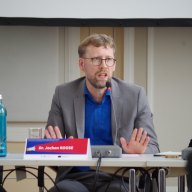IEP-Panel-Discussion: „The End of the EU as We Know It? Street Protests and European Politics“
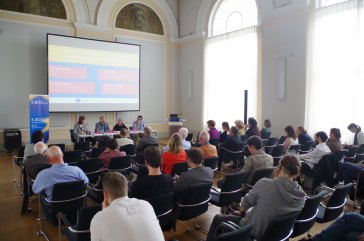
In view of the attention that Fridays for Future received over the past weeks, the panel discussion “The End of the EU as We Know It? Street Protests and European Politics” on 12 September 2019 was a timely event for discussing the impact and role of civic activism, particularly concerning European topics. The speakers were Alexandru Damian from Centrul Român de Politici Europene (CRPE), Dr. Jochen Roose from Konrad-Adenauer-Stiftung (KAS) and Katja Sinko from the pro-European Campaign “The European Moment”. IEP director Dr. Katrin Böttger moderated the event with over 50 guests that was organised in the Banquet Hall at Humboldt University of Berlin.
Damian, who set a focus on grassroots movements in Eastern Europe stated that the main protests in the region are dealing with either the rule of law or anti-corruption issues. In this respect, civil movements have changed the traditional way of political expression in the region. While street protests as such have evolved to be the most important medium of protest in Eastern Europe, Sinko registers another component of importance for protests in Germany, which are developing to put direct pressure on governments. Concerning the question which movements are the most successful in Germany, Roose lists Fridays for Future (F4F), Pulse of Europe (PoE) and right-wing movements such as PEGIDA as their counter movement.
Raising the question how the next steps for pro-European activism should look like, it has to be admitted that there is still a lot of potential to discuss the actual shape of a future European Union. A drawback can be seen in the populist and Eurosceptic mobilization, which is also leading to civil polarization all over Europe on the other hand.
An element of an answer to the raising populism all over Europe could be the “citizen assemblies”, which would unite citizens from different member states by bringing them together and letting them discuss main supranational questions. This would also support the feeling of a shared European identity and close the gap of disconnection for example between Germany and Eastern European countries.
With regard of the pro-European activist’s side it can be admitted that their numbers are often still very small compared to the anti-European side. Especially in Eastern Europe, the citizen’s fears have a huge impact on populist positions. This raises the question how a better dialogue towards European citizens could be realized. While some see the democratic potential the European Union already has, others are criticizing its lack of democracy. Especially middle-aged people do not see a personal benefit in a further increase of European integration, while there are many positive opportunities for the young.
A strong point of consent of the speakers of the panel concerned the relevance of further European activism. Even if social movements tend to lose their power over time, they are able to support individuals as well as political leaders. Further, the formulation of the people’s will finds a powerful outlet in this form of protest. The discussion underlined the fact that movements like Fridays for Future have a huge potential for the mobilization of especially young Europeans.
Author: Farina Kiefer
